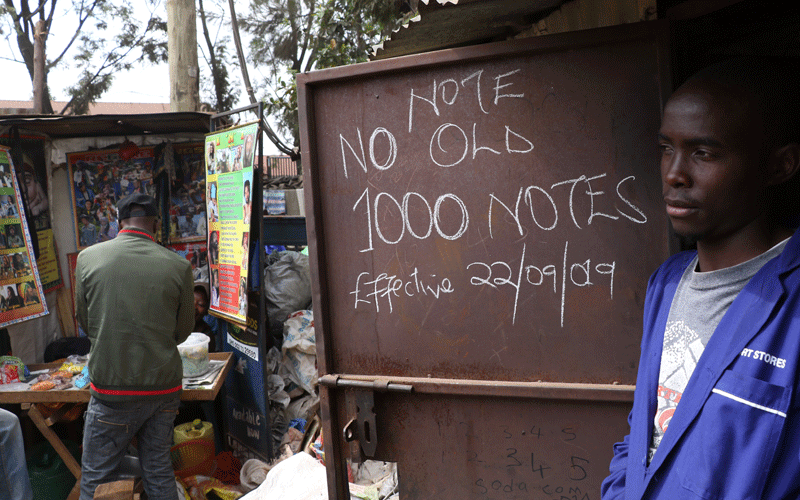Retailers set won deadlines to transact in old banknotes

Businesses have begun rejecting the old Sh1,000 currency notes ahead of the September 30 deadline raising fears that millions of shillings could be locked out, a week to the deadline.
Several businesses have announced a self-imposed deadline for accepting the notes from customers, sooner than the Central Bank of Kenya’s deadline, making it harder for the public to exchange the notes.
The move is a precautionary measure by the businesses to avoid having demonetised notes on their hands beyond the CBK deadline.
In a circular seen by Business Hub, Safaricom advised its retail shops to cease accepting the old notes on September 26 and submit all notes collected the day after.
“Following the demonetisation of the Sh1,000 note, we advise that the last day to collect the old currency at Safaricom shops will be Thursday September 26, 2019,” read the circular.
All M-Pesa agents will also adhere to the same circular, meaning that as from Thursday this week, clients shall not deposit the old notes with the merchants.
Jamii Sacco sets its deadline for accepting the old Sh1,000 notes on September 23, a week ahead of the Central Bank’s September 30 official deadline.
“Hi member, due to change of new bank notes by CBK, we shall not receive old Sh1,000 notes with effect from September 23,”reads a statement from the Sacco.
Pizza Inn, a fast food chain, said it would not accept the notes as from September 26 and advised its customers to use lower denomination notes.
“Dear customer, as per the government directive, we will not be accepting the old Sh1,000 note as from September 26. Kindly use lower denominations or other means of payment,” Pizza Inn said in an SMS notice to its customers.
Wi-United Sacco in Kabete, Kiambu had already set its deadline for yesterday, with chairman Allan Kimani saying the move was meant to avoid “inconveniences with banks in the last minutes when it comes to withdrawing the old generation bank notes on September 30.”
So far, only Naivas, a retailer, has promised to continue accepting the notes up to as late as the night of September 29.
With more businesses expected to follow suit, only banks will be accepting the soon-to-be demonetised notes up to the last minute.
“I fear that even estate kiosks could stop accepting the notes sooner than we expected. That will affect us, last-minute people, badly,” said Bella, a University student residing in Satelite, Nairobi.
George Kamau, a resident of Kiambu, said businesses rejecting the notes would force everyone with the old currency to take it to the bank which is a cumbersome exercise.
“If they start setting their own deadlines they will make us lose money. We cannot all queue at a bank to exchange the notes,” said Kamau.
These self-imposed deadlines complicate further the challenge CBK has had in the demonetisation exercise of Kenyans waiting until the last minute to exchange the old notes for new generation ones.
CBK governor Patrick Njoroge had repeatedly been urging Kenyans to bank the old notes early enough to avoid the last-minute rush common in almost all public exercises.
The demonetisation exercise began in June and seeks to curb illicit financial flow and help fight corruption.
Worse still, September 30 falls on a Monday leaving very little time for banking the targeted notes since most banks remain closed on Sundays and open only half day on Saturdays.
After September 30, all old generation Sh1,000 notes will become valueless. The other old generation denominations, however, will remain in circulation, to be withdrawn gradually.











